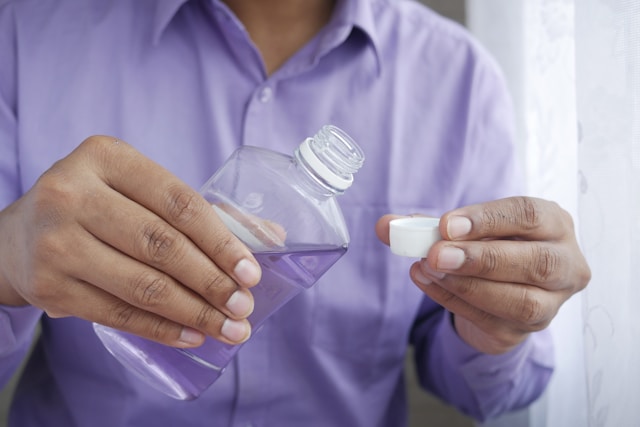
Body + Mind is reader-supported. We may earn an affiliate commission when you buy through some of the links on our site.
Exercise is the one prescription doctors swear by that can help prevent and manage many health conditions. Studies have proved its effectiveness in many situations. However, it’s usually for when you’re overweight or have a disease. Does it have a bearing on your pearly whites? How does exercise affect your oral health? Find out more about how an active lifestyle can benefit your gums and teeth and what you can do to keep them in good condition.

Movement activities affect overall well-being. This impact extends to oral health, hence why doctors always recommend exercise as a natural measure to prevent and manage diseases, including those affecting your gums and teeth. It helps in three ways.
How does exercise affect your oral health? Here are three ways it’ll lead to fewer dental appointments.
Periodontal disease is an oral condition caused by inflamed gingiva or gums. Gums are naturally coral in color, although some may look darker due to the body’s pigmentation. If they start to swell and become red, it could be a sign of a serious mouth problem.
Where does exercise fit in this picture? Periodontal disease affects up to half of the world’s population, but researchers recently found that regular physical activity can lower the risk of developing this type of gum disease by 23%. It’s the best way to keep gums and teeth in top shape without any medications.
A study of over 10,000 young men provided clear evidence of the connection between oral health and movement. After a sizable number of participants answered a questionnaire and completed a fitness test, researchers found that those who regularly exercised required fewer dental restorative treatments than sedentary ones. There are fewer cases of decayed, missing, and filled teeth.
As they raised their activity levels, the number of participants with healthy teeth also increased. In addition, active individuals were less likely to smoke and consume alcohol and energy drinks, although they tended to ingest sports drinks and snuff. Overall, regular fitness activities are associated with fewer dental treatments.
Another indirect way exercise affects oral health is by promoting self-care. The body is interconnected and functions as a single unit. The grunts from lifting weights and the several minutes of running on a treadmill can boost your health from head to toe.
Moreover, exercise offers benefits that indirectly affect your motivation to complete your self-care activities, including brushing or flossing your teeth. Going to the gym regularly can improve your mood, enhance your energy levels, fix sleeping troubles and increase your desire to socialize with others. All these empower you to pay more attention to mouth care and other areas of personal hygiene.

A positive lifestyle is a huge part of your holistic well-being. Do these tips to complement your oral hygiene care.
1. Stay hydrated
Replenish your body with enough fluids before and after training to prevent dehydration. Drinking water also keeps your mouth clean, which is another reason to gulp on those liquids.
2. Use a straw when drinking
Other than water, it’s best to limit the contact of sugary beverages with your gums and teeth. Doing so helps protect them.
3. Eat foods loaded with calcium
Your teeth are hard bones. Keep them like that by eating almonds, garlic, leafy greens, cheese and other nutritious foods that support optimum oral health.
4. Use a mouthwash
It’s good for keeping your breath fresh and reducing factors that lead to tooth decay and gum problems.
5. Get enough sleep
When you’re tired and lack energy, you’re more likely to procrastinate and skip your self-care rituals. If sleeping troubles keep you awake at night, ensure you fix your bedtime routine. It can help create a conducive environment for a good rest.

Physical activities have a direct and indirect impact on your pearly whites. Incorporating exercise into your routine will improve your mood, give you a burst of energy and enhance your mental well-being. All of these increase your motivation to prioritize oral health. Complement your dental care routine with other positive lifestyle shifts, such as eating wholesome food, drinking more water and getting enough shuteye. They’ll keep in top shape from head to toe.
Your email address will only be used to send you our newsletter, and at any time you may unsubscribe. For more information, see our Privacy Policy.